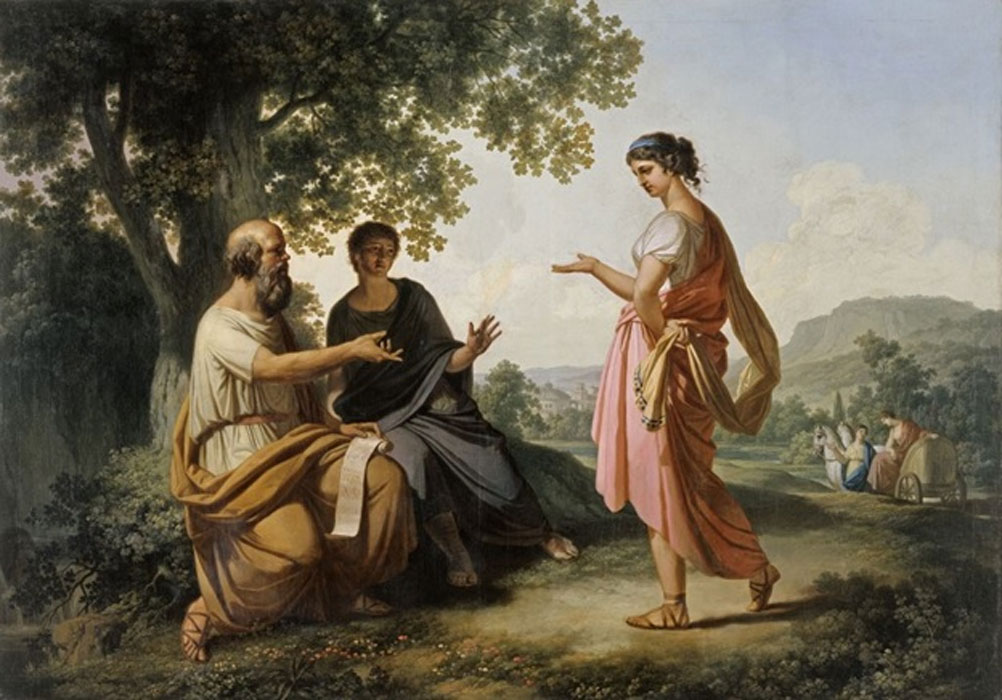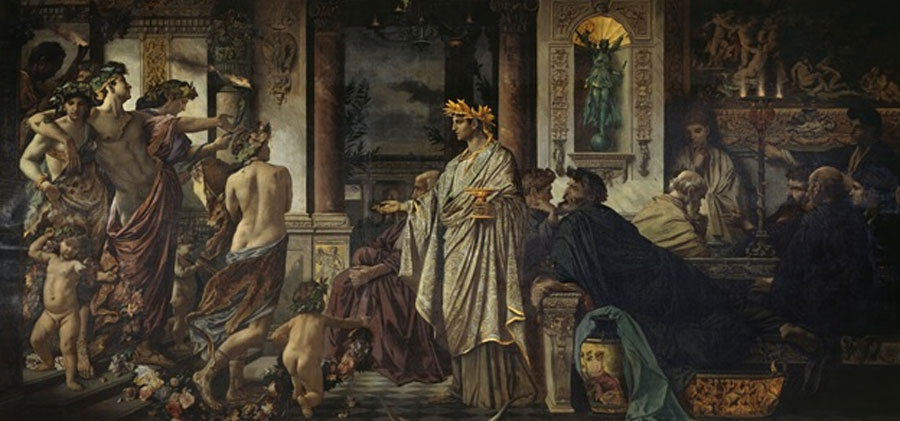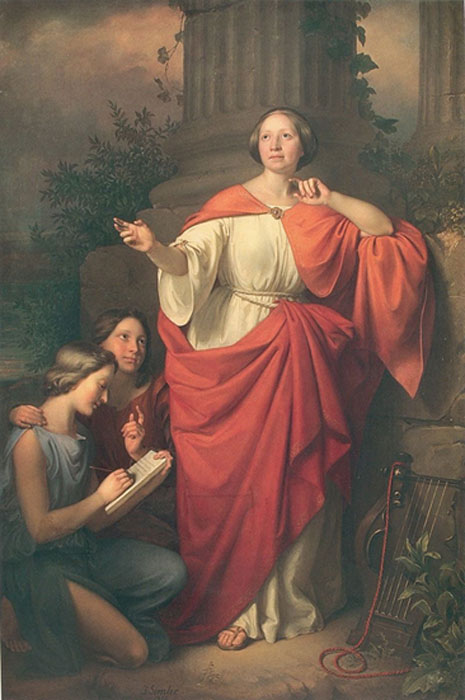
Socrates’ Philosophy of Love Inspired by Diotima, Princess, Priestess and Philosopher
Symposium, Plato’s philosophical text dated at circa 385 to 370 BC, depicts a friendly contest of speeches delivered by a group of notable men attending a banquet. During the discussion, Socrates mentions that, in his youth, he was taught ‘the philosophy of love’ by a woman named Diotima, a priestess from Mantinea. Socrates also claims that Diotima delayed the Plague of Athens, an epidemic that devastated the city-state of Athens in ancient Greece during the second year of the Peloponnesian War (430 BC). Apart from these little facts, not much is mentioned about Diotima as a person.

The Symposium (Second Version) by Anselm Feuerbach (1829–1880)(Public Domain)
Diotima, Originator of Platonic Love
Despite these little bits of information, Diotima played an important role in the Symposium without even having attended the banquet. She taught Socrates the concept of love as a means of ascent to contemplation of the divine, arguing that the goal of love is immortality, either through the creation of children or beautiful things. The concept of Platonic love, an affection that is not based in bodily pleasure, which has been familiar to us for thousands of years, was derived from this argument.
Although this concept ended up being named after Plato instead of Diotima, there was never any question about Diotima’s existence in the ancient world. A first century bronze relief found in Pompeii depicts Diotima and Socrates with the figure of Eros between the two. This relief shows her in the middle of an animated discourse while Socrates listens attentively. Writings from the second through the fifth centuries AD also referred to Diotima as a real person. However, centuries later Diotima’s existence became the subject of much debate.
Catholic Priest Who Doubted Women Philosophers
The suggestion that Diotima was a fictional creation was introduced in 1485 with the publication of Oratio Septima II (The Seventh Address II) written by Maresilio Ficino (1433 - 1499), an Italian scholar and Catholic priest who was one of the most influential humanist philosophers of the early Italian Renaissance. Ficino’s remark on the absurdity of considering that a woman could be a philosopher, effectively took away Diotima’s voice and identity, reducing the priestess to a fictional character and she retained the status of this doctrine for the next 500 years.

Jadwiga Łuszczewska, who used the penname Diotima, posing as the ancient seer in a painting by Józef Simmler, (1855) (Public Domain)
Diotima in Texts: Real or Symbolic?
As nearly all of the characters named in Plato's dialogues have been found to correspond to real people living in ancient Athens, Diotima is the only character in his work whose historicity has been challenged - and only since the 15th century.
The scholars of the early middle ages and the ancients who would have known the historicity of Diotima, never question her existence in their references to her. It is also noteworthy that the praise given to Diotima, despite her views differing from Plato's, is unusual in Plato's work and suggests a true respect. Early writings of Diotima also suggest respect towards her as well as her skill and position in society. For example, in the second century AD, Lucian’s comedy The Eunuch opens with the matter-of-fact mention of Diotima, Thargelia and Aspesia as evidence of the existence of women philosophers. There is no suggestion that these women were anything but philosophers - practicing philosophers at that.




